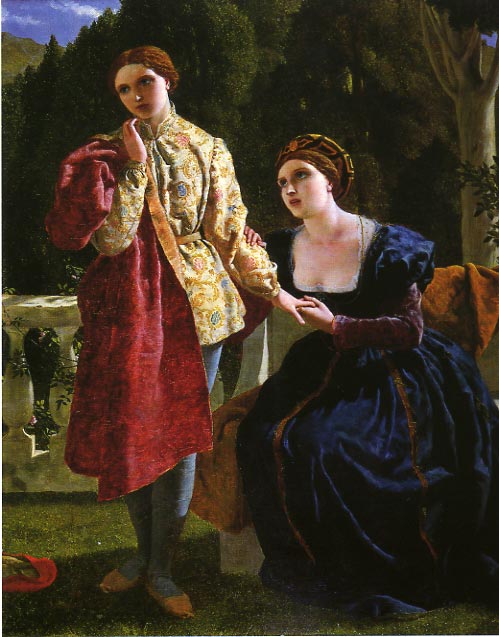Thursday
If good for nothing else, Donald Trump at least is providing teachable moments in my literature classes. This week, as I was teaching Twelfth Night, the president rolled back protections for transgender students. So while one man was centuries ahead of his time with regard to gender questions, the other wants to take us back to the 20th century. Which side are you on?
Yesterday’s Washington Post had the story:
The Trump administration on Wednesday revoked federal protections for transgender students who sought the right to use the public school restrooms that match their gender identity, taking a stand on a contentious issue that has become the central battle over LGBT rights.
Officials with the federal Education and Justice departments notified the U.S. Supreme Court that it was ordering the nation’s schools to disregard memos the Obama administration issued during the past two years that said prohibiting transgender students from using facilities that align with their gender identity violates federal anti-discrimination laws.
I guess it makes too much sense to allow people who identify with the sign on the door (and who dress that way) to use that door. Why suggest the logical thing when you can be rigidly ideological? Shakespeare would be delighted with the progress we have made and disgusted at the rollback.
That’s because he understood, in a profound way, that people can’t always be reduced to their anatomical gender. In Twelfth Night he wrote a play that has women who find they have an inner man and men who find they have an inner woman. In fact, the play features people who are deeply unhappy when they find themselves stuck in a single gender. Only the well-balanced Viola seems equally at home in both genders.
In the play’s opening, Count Orsino is enthralled to discover that he has a soft and sensitive female side, and he does nothing but sit around listening to sweet music (“the food of love”). His unnerved attendants suggest more manly pursuits in the hope that he will recover:
Curio: Will you go hunt, my lord?
Orsino: What, Curio?
Curio: The hart.
Orsino: Why, so I do, the noblest that I have:
O, when mine eyes did see Olivia first,
Methought she purged the air of pestilence!
That instant was I turn’d into a hart;
And my desires, like fell and cruel hounds,
E’er since pursue me.
Olivia, meanwhile, at first feels like she has to play, to the hilt, the ultra-sensitive women. Then, after encountering Viola, she decides not to mourn her dead brother for seven year but instead become a female version of a courting male.
If Orsino is a once macho, hart-hunting man who has now turned into his stereotyped version of a woman and Olivia is a porcelain woman who has turned into her stereotyped version of a man, neither has achieved anything like a healthy balance. Rather, they are both careening between caricatures. They fall in love with Viola, I think, because she represents a healthy balance.
I’ve composed a horoscope for the Orsinos and Olivias of the world as they read the play. I send it out to all those legislators who are convinced that public order can only be maintained if we insist upon our anatomical genders:
Men with an Orsino complex
You feel stuck in the world’s expectations that you behave as a stereotypical male and appreciate how Viola, in her guise as a man, is able to respond to Orsino with womanly empathy and to Olivia with womanly understanding. You know that you too have a woman hidden within your male exterior.
You also relate to Viola’s discomfort at being confronted by male aggression (Sir Toby’s duel challenge). You’ve never felt right that men were supposed to behave this way. Perhaps Viola transforming into a woman at the end of the play captures your own secret fantasies of becoming a woman.
Women with an Olivia complex
You feel stuck in the world’s expectations that you behave as a stereotypical woman and are drawn to the scenes where Viola exercises “male” initiative, whether by dressing as a man, aggressively courting Olivia (on behalf of Orsino), or establishing comradeship with Orsino. Perhaps you relish her seeming transformation from a helpless woman (in the first duel encounter) to one who, tapping into her inner Sebastian, can hold her own (in the subsequent two).
By using the occasion of carnival time (Twelfth Night) as a cover, Shakespeare is able to do justice to our actual complexity. The Trump administration and various GOP legislators are not into human complexity.


